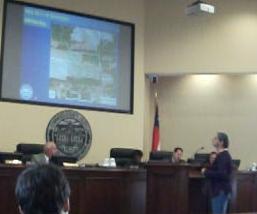Two years ago the Georgia legislature was in denial, as Carrie Teegardin wrote for the AJC 4 April 2010, Georgia prison population, costs on rise,
As Georgia lawmakers desperately search for ways to slash spending, they are not debating an option taken by other states: cutting the prison population.
Georgia operates the fifth-largest prison system in the nation, at a
cost of $1 billion a year. The job of overseeing 60,000 inmates and 150,000 felons on probation consumes 1 of every 17 state dollars.
The state’s prison population has jumped by more than a quarter in the past decade and officials expect the number of state inmates to continue to creep upward. Georgia has resorted to measures other than reducing the prison population to keep corrections spending under control.
19 months later, things had changed, as the Atlanta Business Chronic reported 15 December 2011, BJS: Georgia prison population drops in 2010, Continue reading


